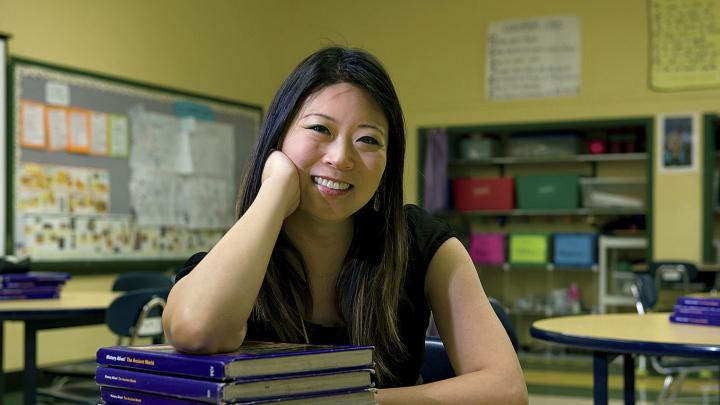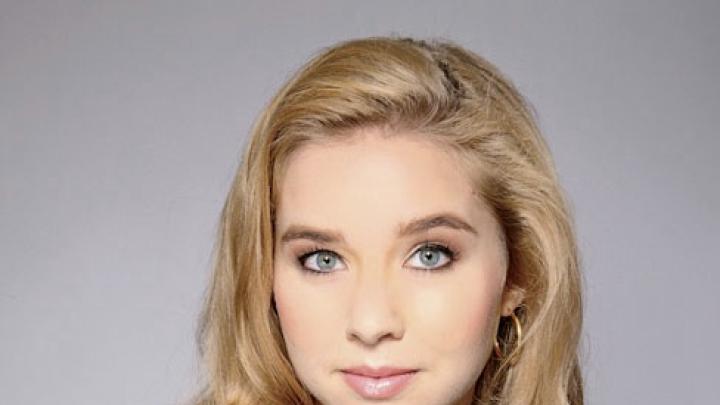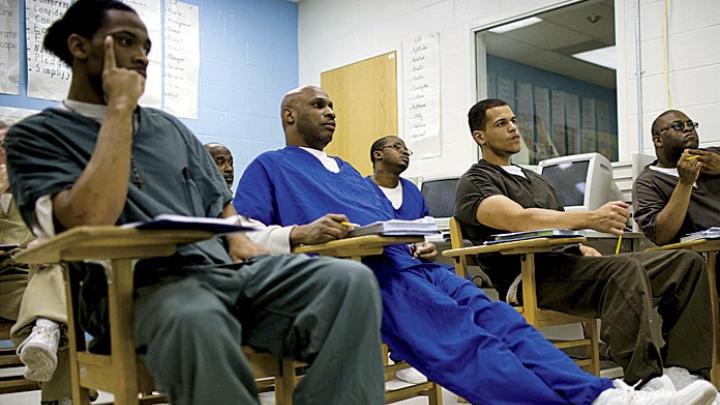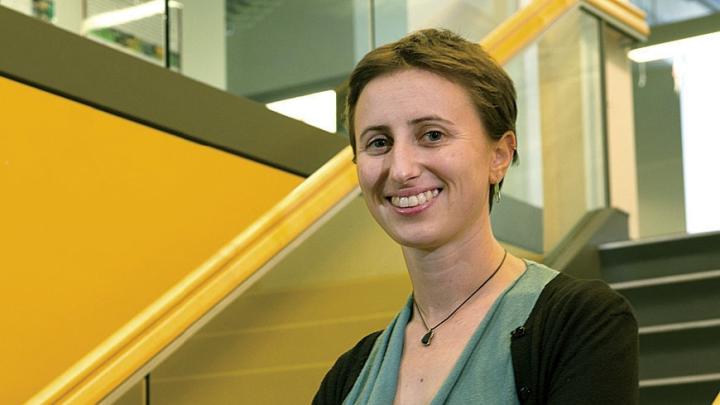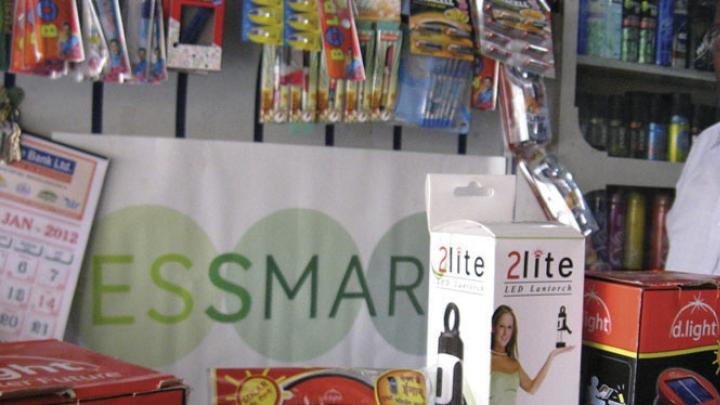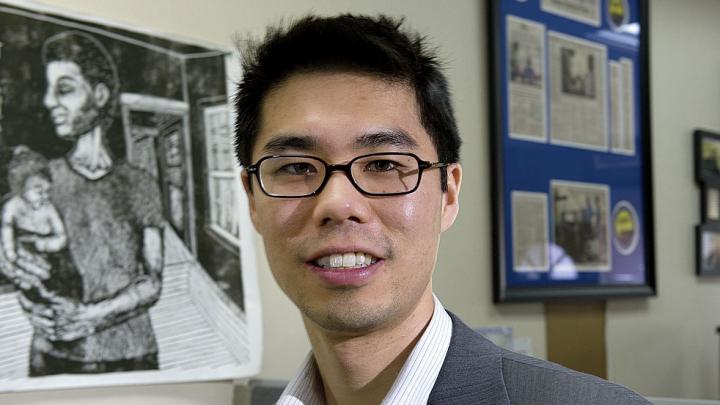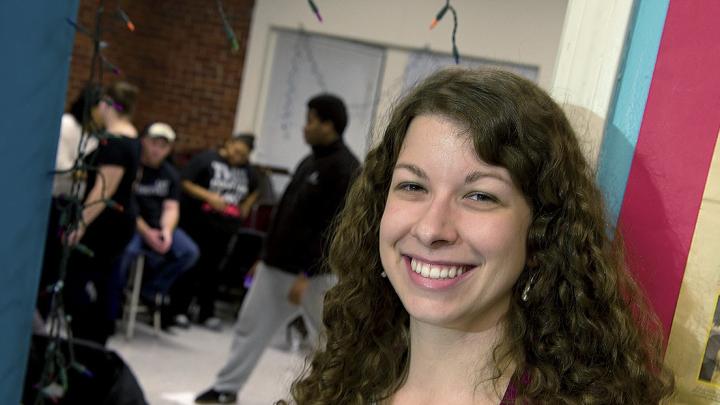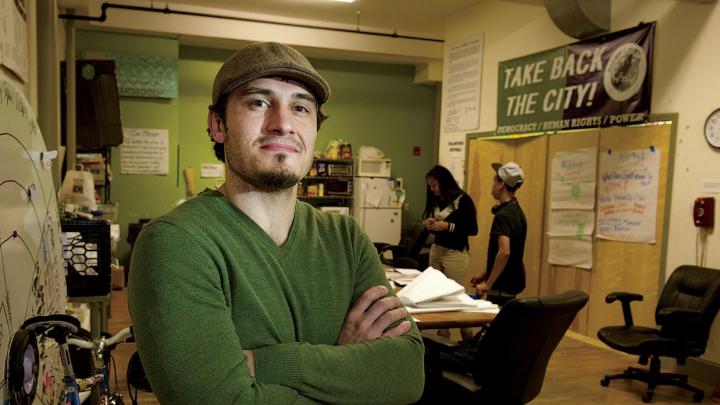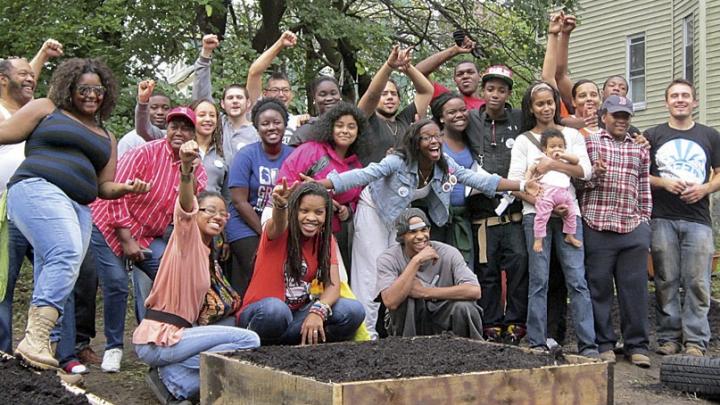Graduating seniors are “definitely interested in making an impact on the world,” says Robin Mount, director of Harvard’s Office of Career Services. “They are poised to combine fresh ways of approaching a problem, including using digital and technological communications, to move social issues forward. They build networks and can marshal resources in a global way.” She points to new Rhodes Scholar Phillip Z. Yao, a physics and philosophy concentrator, who last summer founded a virtual library for more than a million students in India. “This younger generation is leapfrogging over problems using creative means: he’s a leader in education, but doing it in a nontraditional way.”
Social entrepreneurship and the nonprofit sector both require people to constantly gather and hone disparate skills as they move vertically and laterally among posts and organizations: more like climbing a jungle-gym than riding the old-style escalator to the top, as Facebook’s chief operating officer, Sheryl Sandberg ’91, M.B.A. ’95, couched the new work world for Harvard M.B.A.s at their 2012 Commencement. This general trend has prompted OCS to retire the word “career” in counseling students, Mount adds. “Instead, we recommend that they gather knowledge and skills like a tool kit that they will need to be effective.” The six alumni profiled below exemplify those who are creating their own niches and, as Mount puts it, “think of themselves more as their own start-up companies. They approach problems in a fresh way and manage their own next steps—for themselves.”
Jessica Tang ’04, Ed.M. ’06
Educator and activist, Young Achievers Science and Math Pilot School
Jessica Tang felt pressure to become a consultant, doctor, or lawyer—“but that is just not where my interests lie,” she says. Turned on instead by Harvard courses that explored racism, inequality, and education, she focused on sociology and was one of a handful of students in 2005 to complete the still-offered Undergraduate Teacher Education Program. “I wanted to work in creating education and social policy but I felt I needed experience in the field first,” she says. For eight years, she has found her passion through the profession and currently teaches social studies to Boston’s sixth graders. An award-winning teacher, Tang is also an elected member of the Boston Teachers Union executive board (then 29, she was the youngest member to be elected in a long time) and has influential roles with other organizations, including the governor’s Teacher Advisory Committee. As a union leader, Tang spearheaded the creation of the union’s first Community Advisory Board, “where we meet with parents, students, and community members and organizations to work together on public education issues in Boston,” she says.
Because she knows that “poverty and neighborhoods and economic opportunity” hugely affect her students—and their ability to succeed in school—she also co-founded the Teacher Activist Group-Boston (TAGB), which last year organized the second annual Social Justice Educators Conference. “To get more than 250 to 300 folks together to start building a movement for equitable schools was not easy,” she says of this accomplishment. TAGB was also part of a national effort to create a curriculum in support of ethnic studies, the “No History Is Illegal” campaign, after Arizona’s attorney general declared the Tucson Unified School District’s Mexican American Studies program illegal in 2011.
Tang is discouraged by education policies that emphasize quantitative evaluation and, in her view, punitive measures against students and teachers alike. “They are hurting the most vulnerable student populations and both major political parties are backing them,” she says. “We are totally on the wrong track. Evaluation is not support. Also, unions are vilified, yet the highest-achieving states, including Massachusetts, are all highly unionized. Busting unions and blaming teachers is not the right lever for change. Creating structures, supports, and institutions that serve student and family needs, particularly for those who have had the least access and opportunities, is where we need to refocus our energies and resources.”
The biggest obstacle to choosing her career wasn’t lower pay but “getting my parents on board,” Tang reports. “They said, ‘We didn’t send you to Harvard to become a public-school teacher.’” They have since come to respect and support her decision. “A lot of people go to Harvard to go into investment banking and jobs that give you extrinsic rewards. That’s just not me,” Tang says. “My definition of success is more about the intrinsic rewards: knowing that the work you do is not as much about you as it is about making your community better. And it’s about justice. If you have privilege and power and skills and opportunities to improve the lives of others, it’s the right thing to do.”
Baillie Aaron ’07
Founder and chair, Venturing Out
Founder and executive director, Spark Inside
One in a hundred adults is incarcerated in America. “That’s an economic, social, and moral problem,” says Baillie Aaron. “And when people are released from prison, few employers will hire them—regardless of their crime. The consequences of this reality really fired me up to want to make a change.” Such zeal, and a deep desire to help people “reach their potential,” led her to found Massachusetts-based Venturing Out Inc., which runs a 10-week course on entrepreneurship for inmates. Since 2010, 227 men and women have completed the course: many are now running businesses such as church-window washing, online talent recruitment, and chemical-free landscaping. “It’s not a therapy or counseling program, nor does it focus on improving weaknesses,” Aaron adds. “We assume people are resourceful and capable, and teach them how to apply their existing skills to become economically self-sufficient.”
The idea behind Venturing Out came after graduation when Aaron, then a research assistant at the Kennedy School’s Program in Criminal Justice, was tutoring a young man at Boston’s Suffolk County House of Correction. She noticed not only his ability to work hard but also his keen business sense—a trait shared by many prisoners, albeit often gained through illegal activities. “I saw an untapped market” for transferring those skills, she recalls, and entrepreneurial aims that were “highly achievable.”
Aaron was undaunted by her own lack of formal business training. (The Calgary native, a psychology and economics concentrator, had run three organizations in high school through Junior Achievement.) She and a group of Harvard cohorts taught themselves entrepreneurship through books borrowed from the Business School’s Baker Library, then developed a curriculum with the guidance of M.B.A. students. Venturing Out is now supported by grants from private foundations, such as the Lenny Zakim Fund, Foundation for Metrowest, and the Clowes Fund, but to meet the demand to increase services, Aaron says, the organization is looking for an additional $250,000. “Fundraising for a program empowering disadvantaged adults, especially those in prison, is a ‘tough cause’ to market,” she adds. “Regardless, we will continue to keep overhead low and run the organization cost-effectively.” Venturing Out also relies on a core group of 12 instructors who are practicing entrepreneurs and about 50 other volunteers on call, along with two paid employees (including executive director Laura Winig, who is also a Kennedy School case writer). Aaron is a hands-on board chair, but has relocated to the United Kingdom, where she earned a master’s in criminological research from the University of Cambridge. She is now executive director of another organization she founded, Spark Inside, that provides free life-coaching to teenagers leaving custodial institutions in Greater London.
“It’s important for undergraduates to know that if they are passionate about something, they can make it happen even if they do not have immediate expertise,” she says. “We need more Harvard alumni in the social-justice sector—and more who are adapting and applying for-profit efficiencies.” Money is the biggest obstacle to pursuing nonprofit careers, she says. “I can’t afford the same lifestyle as my friends in other careers, like investment banking. I can’t buy a house yet, for example. But I’ve never been someone who spends a lot and I don’t have a family to support.” She is fueled instead by the fact that “I’m making a difference. I’m challenged by my work. And the colleagues, clients, and mentors I’ve met on this journey continually inspire me.”
Jackie Stenson ’08
Co-founder, Essmart Global
After college, Jackie Stenson spent two years traveling overland from Ethiopia to South Africa. The trip to eight countries (funded by a fellowship) was thrilling—and ultimately led to last year’s launch of Essmart Global, an award-winning start-up with a social mission. The company sells “life-improving” technological devices, such as solar-powered lanterns, through local shops to residents in rural southern India. In her travels, Stenson realized that even though such devices existed, there was a fundamental problem of distribution, and asked herself, “How can I get these things into the hands of people who can benefit from them?” Focusing on the fact that roughly 90 percent of retail goods in India are sold through an estimated 14 million mom-and-pop shops—“They are the lifeline to something like 192 million households”—she and her business partner, MIT alumna Diana Jue, concluded that “India represents a huge and growing market opportunity, with a large local retail-shop network.” In addition, many of the technologies Essmart distributes were already available there—but not at the village level. Today, Essmart is working with about 30 stores that sell six products made by India-based companies and Essmart employees deliver the goods to the stores themselves, via motorbikes.
Jue recently moved to Bangalore and oversees operations in Pollachi (India). Stenson has stayed put in Cambridge (she is a resident tutor at Cabot House), running the business along with her part-time job as a preceptor in technology entrepreneurship and innovation at the Harvard School of Engineering and Applied Sciences, where she was an engineering concentrator. She has always loved solving puzzles. “Instead of hiring a babysitter, my mother would leave my brother and me with a 1,000-piece jigsaw puzzle,” she says. “We’d sit and do it for, like, three hours.” While at Harvard, she cross-registered for MIT courses, including one on technology in developing countries. “We want to bring the problem of distribution into the spotlight because it is also important for designers to actually think about this in helping to bridge the global supply chain,” she notes.
To date, Essmart has relied on grants and prize money to pay for operations and three full-time employees: last year, the company won $50,000 in the Dell Social Innovation Challenge, besting nearly 1,800 other teams, and was a winner of the MIT IDEAS Global Challenge and a finalist in the Harvard President’s Challenge. But the company relies most on a core group of 10 volunteers, Stenson and Jue among them. Next step is a search for angel investors. “This is social enterprise,” Stenson points out. “The motivation is not a monetary one. But that being said, we have designed the business model so that it can be sustainable and everyone down the supply chain can make money from it.”
Aaron Tanaka ’04
Co-founder and executive director, Boston Workers’ Alliance
“The best way to have a safe community is to have people employed and to create productive, tax-paying citizens,” says Aaron Tanaka. To that end, his organization has three components that work in concert to help expand economic opportunities for low-income city residents: a temporary job agency (Boston Staffing Allliance); local economic development projects; and community organizing and advocacy. The agency promotes long-term job placement, in part by eliminating fees typically charged by traditional temp agencies and by assigning two staff members to support employees and mediate any problems that arise. More than 120 employees have secured temporary or permanent placements in sectors such as food service, landscaping, and professional conferences. The alliance runs two businesses: a vegetable-oil recycling company that picks up waste oil from restaurants and sells it to bio-fuel producers; and another, currently in development, that teaches urbanites to grow their own food. As for advocacy: Tanaka and his organization have earned national attention as proponents of reforming the state Criminal Offender Record Information (known as CORI). In 2010, Massachusetts became one of only two states in the country to eliminate the criminal-record question from job applications and to reduce the number of years that arrests and/or convictions stay on one’s record. “Just having been arrested, even with no conviction,” Tanaka says, “creates huge barriers to people being able to get work.”
Tanaka, who grew up in San Francisco’s East Bay neighborhood, says he had “survivor’s guilt” when he got to Harvard. “I saw so many of my classmates from middle and high school who dropped out, were incarcerated, or became involved in gang activity,” he says. “It was an extreme contrast to be surrounded by so much wealth and opportunity at Harvard that I became committed to figuring out how to give back to the people that I felt like I had left behind.” He joined fellow public servants at the Phillips Brooks House Association (PBHA) and spent a year tutoring a juvenile offender, among other activities, then interned for one summer as an environmental lobbyist in Washington, D.C., where he realized he wanted to do social advocacy in Boston.
In his junior year, Tanaka took a semester off to work full-time on prison reform for the American Friends Service Committee, a Quaker advocacy group. Upon graduating, Tanaka won a Stride Rite Foundation Public Service Fellowship, awarded to increase employment rates in Boston’s poorest sections, that provided the seed money to start the Boston Workers Alliance (BWA). Today his organization has sevenemployees and has received formal accolades from the Boston City Council and both chambers of the state legislature. Along the way, Tanaka earned a master’s degree in community economic development from Southern New Hampshire University. BWA has expanded its advocacy to advance equal access for minorities in the building trades, eliminate harsh prison sentences for nonviolent offenders, and to further the creation of an inclusive, environmentally oriented “green economy.” “The sociological research shows that people who have not committed a crime in seven years have as much of a chance of never doing it again as those who never did,” Tanaka says. “I think people deserve a second chance.”
Emily Parrott ’09
Program coordinator, Center for Teen Empowerment
Emily Parrott works with teenagers in Somerville, Massachusetts, tackling their most pressing social problems: domestic and gang violence, bullying, unwanted pregnancies, and substance abuse. It was a cluster of overdoses and suicides among teens in the early 2000s that led alarmed city officials to bring the nonprofit Teen Empowerment into the working-class city that abuts Cambridge. Each year, 12 of the 80 applicants are chosen as youth organizers. “They want to make their community better,” Parrott says, “through increasing youth voices in governmental decision-making, while also working on more positive peer relations.” Her program develops teens’ awareness of themselves, of their community, and of a practical campaign to promote their vision for change. The activities can include therapeutic exercises that build trust, street tours of places they’ve never been to in Somerville, meetings with police to foster better communication and interactions on the street, and reaching out to at-risk teens in the wider community through performing-arts events (for which they can create their own music and theater). Activities culminate in the annual Somerville Youth Peace Conference, which drew more than 500 people last April to work on improving media perceptions of teenage experiences.
“The teen years are such a crazy, emotional, moldable time,” says Parrott. “When I was a teenager, supportive adults and mentors were really important to my success in overcoming circumstances.” She grew up in small southern towns. By the time she was 16, both her parents had died. In high school, she joined the Girl Scouts, took up painting and drawing, was on the forensic team, and excelled at snowboarding (which she traveled to do)—“all of which also helped me survive,” she adds.
At Harvard, she became a director of PBHA in her sophomore year, while also working to expand an after-school program in Boston’s Chinatown. There, she developed volunteers’ understanding of the cultural and community contexts in which they were working and saw first-hand the benefits of “out of school” education, especially for children in poorer households. “It creates a support network away from family and school, which is necessary for young people,” she explains. “Out-of-school education is where the safety net can be if they have none at home, and where personal and social change can happen.”
After graduation, Parrott spent a year as the PBHA nonprofit management fellow, funded by the Harvard Club of Boston, and then moved into her post at Teen Empowerment. There, she typically conducts one exercise she finds particularly meaningful, in which teens are paired off and the “follower” is blindfolded and led around by the “leader.” “We ask them what it’s like to have to trust people. We also analyze what it means to walk through a community without thinking about what’s really there, or to blindly follow others,” she says. “Being a mentor and an adviser to teens means walking them through situations while not giving them the answers, but questioning them and encouraging them to find what they need and take steps to get where they want to be.”
David Jenkins ’03
Program director, Roxbury Environmental Empowerment Project
David Jenkins grew up in rural Millinocket, Maine, where the paper industry has historically ruled the local economy. “People always felt they were under attack by environmentalists, who were seen as wanting to put them out of work,” he says. “I carry that consciousness. I approach environmental work in the context of how our country works, how people thrive, and view the environment as intertwined with social and economic justice.”
As a community organizer in one of Boston’s poorer neighborhoods, Jenkins works with residents, especially teenagers, on public transportation, land-use, and anti-pollution campaigns. To reduce the community’s high asthma rates and other health problems, he worked with local teens to research the issue, educate residents, lead a public hearing, and draft an ordinance that will reduce diesel engine emissions by installing pollution traps and enforcing anti-idling-laws, slated to come before and pass the Boston City Council in December. “The exhaust from burning diesel has upward of 20 toxic chemicals and very high levels of particulate matter that sticks in your lungs and transfers to your bloodstream,” Jenkins says. “Many of these vehicles park in Roxbury, where residents have high rates of respiratory illness. There is a lack of institutional commitment to these people’s health.”
At Harvard, Jenkins concentrated in literature, with a focus on progressive social theory. “A lot of what I was studying was developing tools to analyze how oppression functioned in society, and what it means to be a subject and to act.” Yearning for a more visceral experience, he spent a year immersed in South Africa’s vibrant post-apartheid movements: “I was learning and growing from working with people on the ground working for social justice, poor people fighting for land, housing, basic education, and utilities.” Returning to Boston, an inspired Jenkins moved right into community organizing, where he sees “an inextricable link between environmental issues and racism. Pollution disproportionately hurts certain communities of color and those with low incomes.”
For him, working on these problems offers “the richest life.” “I really believe there are deeply rooted historical systems of injustice in our country and that the way to solve them is to build the power of the people who are most affected by those systems to fight for their own solutions,” he says. “In terms of my pay or whatever else has been sacrificed—that can’t touch the joy of feeling that I am doing what I believe in. I’m living my values. Every day.”
